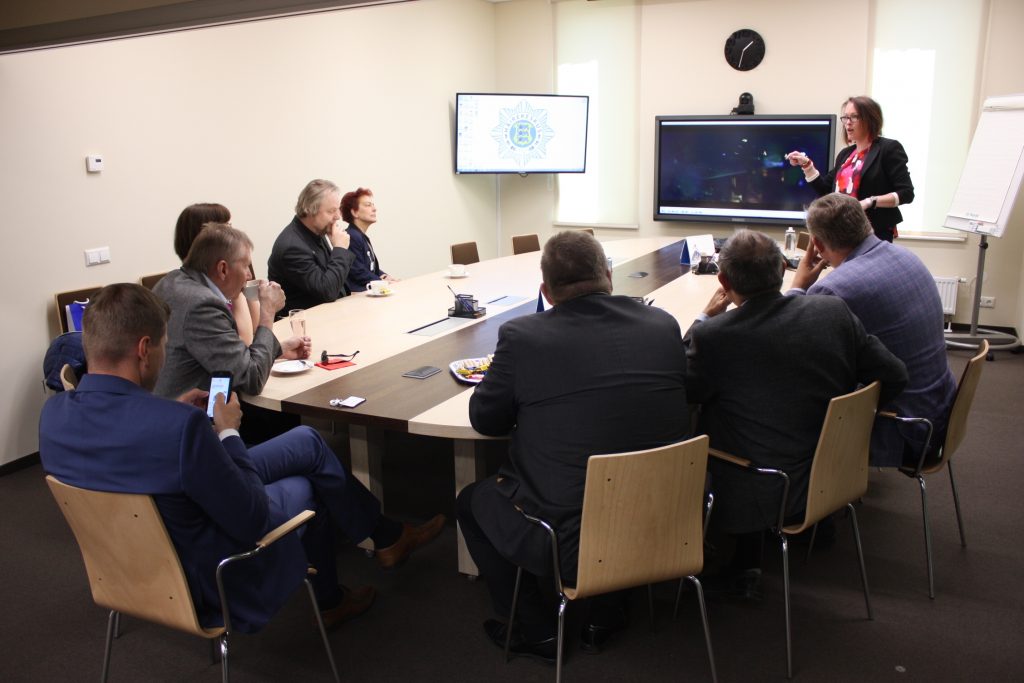Seminar „People-led innovation”
The seminar will explore whether the experiments around the world have resulted in an improved quality and the effectiveness of lawmaking or merely in a „democracy theatre”. We will discuss the role of technologies to foster collaboration between people and lawmakers. The ability of communities and institutions to work together enables solving problems more effectively and legitimately.

The seminar will take place from 15:00 to 16:30 on Wednesday, May 30, 2018 in the seminar room of Foresight Centre (Toompea 1, Tallinn, Komandandi maja, press 3 at doorbell for Arenguseire Keskus).
Speakers:
Beth Simone Noveck, Director, Governance Lab, and Professor, New York University
Yoko Alender, Member of Parliament
Nele Leosk, Researcher, European University Institute
Moderator:
Meelis Kitsing, Head of Research, Foresight Centre
To attend, please register by writing to Ms. Berit Brandt (ask@riigikogu.ee) by Monday, May 28.
Speaker Bios:
Beth Simone Noveck directs the Governance Lab (GovLab) and its MacArthur Research Network on Opening Governance. She is a Professor in Technology, Culture, and Society at New York University’s Tandon School of Engineering. Her current research focuses on „people-led innovation”, namely the ability of communities and institutions to work together to solve problems more effectively and legitimately. Beth served in the White House as the first United States Deputy Chief Technology Officer and director of the White House Open Government Initiative from 2009 to 2011. UK Prime Minister David Cameron appointed her senior advisor for Open Government. Beth is a graduate of Harvard University and Yale Law School.
Yoko Alender is an Estonian architect, civil servant and a politician. She is a member of the XIII Estonian Parliament, the Riigikogu, where she belongs to the Reform Party faction. She is a Board Member of Open Government Partnership in Estonia. From 2008 to 2012 she worked in the Tallinn Culture and Heritage Department, as a Chief Specialist of the Agency, working with heritage sites. From 2013 to 2014 she worked for the Estonian Ministry of Culture, as an adviser on architecture and design. She graduated with a master’s degree in architecture and city planning from the Faculty of Architecture and Urban Planning at the Estonian Academy of Arts.
Nele Leosk is a PhD researcher in political science at the European University Institute. Before her PhD research, Nele led the ICT in education domain at the e-Governance Academy, advising governments in more than 40 countries on public sector reform and e-governance. She was a team member of the pan-European online voting advice application EUANDI for the European Parliamentary Elections in 2014 and a programme co-chair of the International Conference on the Theory and Practice of Electronic Governance (ICEGOV) in 2011. Her current research interests include: governance innovation, internet and politics, political participation, e-governance, and e-participation.
Latest news
-
11.02 2026Study: Impacts of low birthrate on pensions are primarily mitigated by funded pensions
According to the Foresight Centre’s new study “Pension Size and Purchasing Power by 2050”, a multi-pillar pension system makes pensions more resilient to demographic shocks, spreading risks between the labour market and capital markets.

 An independent think tank at the Riigikogu
An independent think tank at the Riigikogu